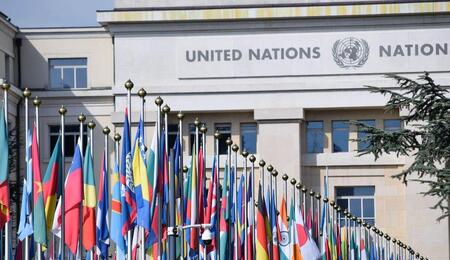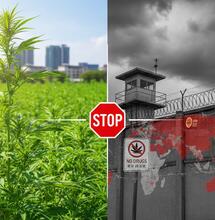UN Report Calls for Major Drug Policy Shift

A new report from the United Nations acknowledges that the War on Drugs has had a major impact on human rights. The report urges member states to abandon punitive drug-control policies, and instead focus on public health approaches and compliance with human rights law standards.
The new United Nations report claims that viewing drugs as a criminal issue only leads to more problems and causes more harm among those affected.
The report, prepared by the UN Human Rights Office and commissioned by the UN Human Rights Council, urges member states to focus on crafting effective drug regulations where decriminalization of drugs for personal possession and use should also be considered.
“If effectively designed and implemented, decriminalization can be a powerful instrument to ensure that the rights of people who use drugs are protected,” the report says.
The report commends those countries and regions that have already moved to adopt policies that decriminalize drug use. More countries now treat the use of substances as a public health and human rights issue, while adopting scientific-based and harm reduction approaches. The UN High Commissioner for Human Rights, Volker Türk, has called on States to build on this positive trend.
“Laws, policies and practices deployed to address drug use must not end up exacerbating human suffering. The drugs problem remains very concerning, but treating people who use drugs as criminals is not the solution,” Türk said in a statement Wednesday, Sep. 20.
“States should move away from the current dominant focus on prohibition, repression and punishment, and instead embrace laws, policies and practices anchored in human rights and aimed at harm reduction,” he said.
The Commissioner has acknowledged that too much control and enforcement while combating drugs is driving an increase in human rights violations. This happens despite there's mounting evidence showing that decades of criminalization and enforcement of strict and rigid laws neither protects the welfare of people nor deters drug-related crime, Türk said.
The High Commissioner further emphasized that “today’s drugs policies have the greatest impact on those who are poorest and most vulnerable.”
As outlined in the report, “militarized” drug policies have the most severe impact on people of African descent, women, indigenous communities and younger people coming from poorer backgrounds.
The disproportionate use of criminal penalties discourages individuals who reach out for drugs to seek help and treatment instead. Over 650,000 people die every year because of drug-related causes, as policies deepen social stigma and exclusion. In addition, almost 10 percent of all new HIV infections in 2021 at the world level were among people who injected drugs, according to the report.
Also worrying is the increased use of capital punishments for convictions concerning drugs, in what would be one of the most obvious violations of human rights law norms and standards. Drug-related cases that resulted in capital punishment amounted to 37 percent of all executions recorded around the globe in 2022. The exact number of cases for each drug cannot be determined, because there are countries that hide this type of information, but cannabis is on the list.
“The world drug problem has a major impact on the enjoyment of human rights. Responding to the harms associated with drug use and to the illicit drug trade constitutes a major public policy challenge of our time, of which all aspects have human rights implications,” notes the report.
Also read on Soft Secrets:
- United Nations Appears to Criticize Cannabis Reform











